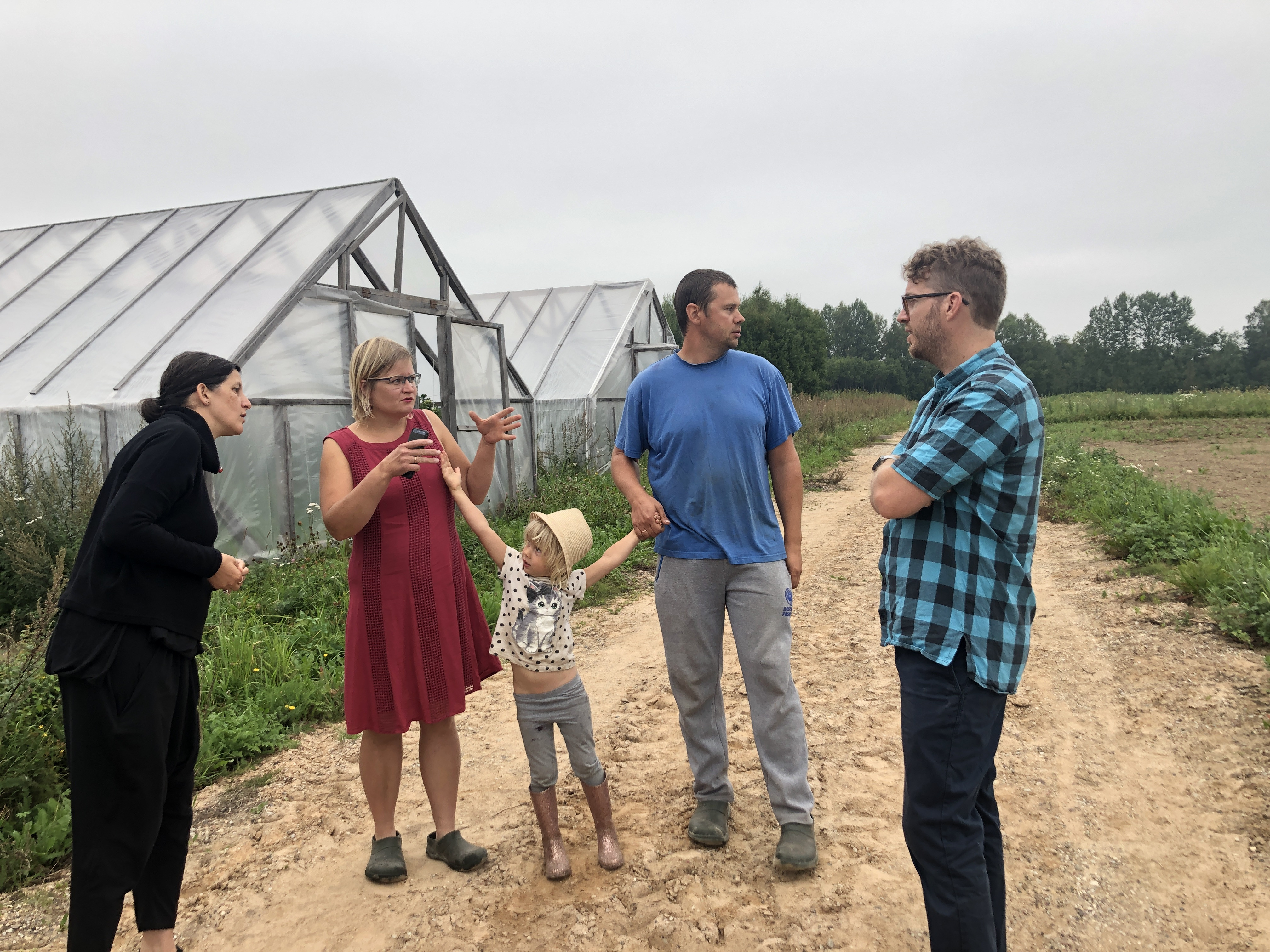Although in the process of consolidation of agricultural lands, as smaller plots of land are combined into larger ones, the number of rural farms in Latvia has a constant tendency to decrease, still a significant part of farms, or 35%, are considered small (the area of their cultivated land is less than 5 hectares).(1)
“Studies confirm that it is small farms that play an important role in food production, environmental protection and the preservation of the locally typical landscape, as well as in maintaining the social flexibility of local communities and ensuring the economic viability of rural areas. (2) Small farms in the Eastern European region are positively associated with biodiversity and cultural heritage. (3)”
The aforementioned studies were conducted with the aim of presenting the positive aspects of small farms in order to encourage territorial planners and policy makers to work on solutions that would allow to preserve these forms of farming as much as possible. Currently, their existence, as well as the motivation to grow food for own consumption in general, is threatened by such factors unrelated to own cultivation as emigration,
the bias of financial support instruments in favor of large, industrial farms, low agricultural income, the aging of the rural population, the strict EU quality and hygiene requirements, as well as the fall in food prices. (4) However, research also points to factors related to territorial planning, such as roads the quality of the infrastructure and the long distances between the places of cultivation and consumption. (5)

Chiara Tornaghi, Michiel Dehaene, Liene Jākobsone and Manten Devriendt visiting Absolūts Ēd. Ilze, a philosopher by education, Juris, an economist, but both have completed organic farming courses. They are learning to get to know their land in practice and to be in harmony with nature, growing vegetables and greens, which should be the basis of everyone's menu. They grow and deliver themselves, fresh from the garden to your door.
Toma, I., Redman, M., Czekaj, M., Tyran, E., Grīviņš, M., Šumane, S. (2021). Small-scale farming and food security - Policy perspectives from Central and Eastern Europe. Global Food Security, Volume 29, 100504.
Rivera, M., Guarín, A., Pinto-Correia, T., Almaas, H., Mur, L.A., Burns,V., Czekaj, M.,Ellis, R., Galli, F., Grivins, M., Hernández, P., Karanikolas, P., Prosperi, P.,Zamora, P.S., 2020. Assessing the role of small farms in regional food systems in Europe: Evidence from a comparative study. Global Food Security 26, 100417.
Davidova, S., Bailey, A., Dwyer, J., Erjavec, E., Gorton, M., Thomson, K., (2013). Semisubsistence Farming – Value and Directions of Development. European Parliament, Directorate for Internal Affairs. Available online at: https://www.europarl.europa.eu/RegData/etudes/etudes/join/2013/495861/IPOL-AGRIET(2013)495861EN.pdf
Burkitbayeva, S., Swinnen, J., (2018). Smallholder agriculture in transition economies. Journal of Agrarian Change 18, 882–892.
Toma, I., et al. Small-scale farming and food security.